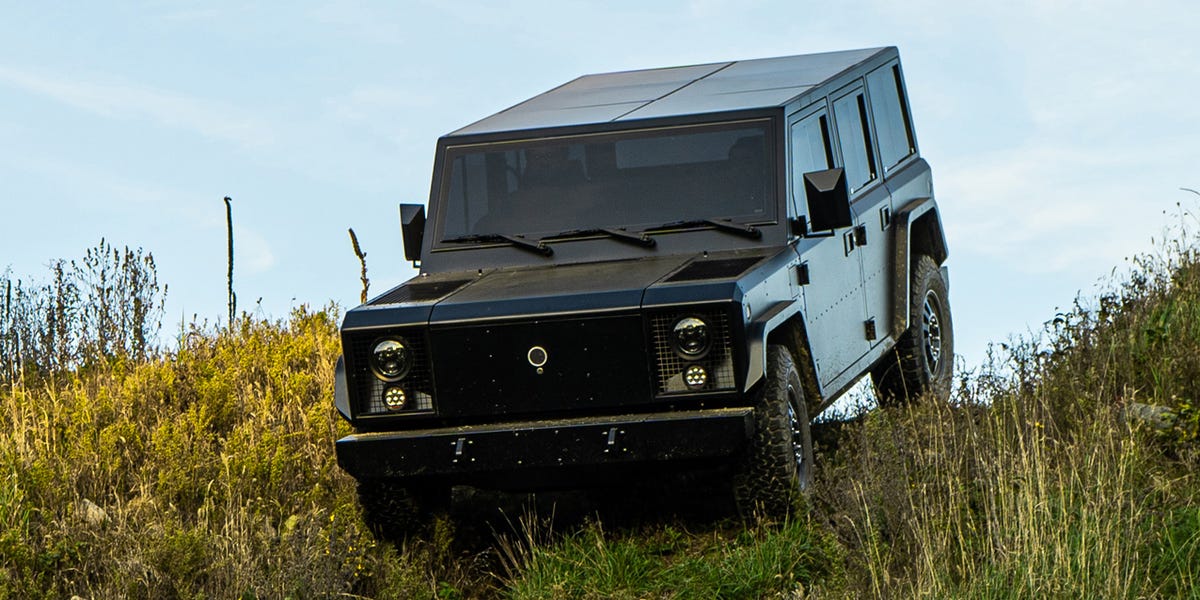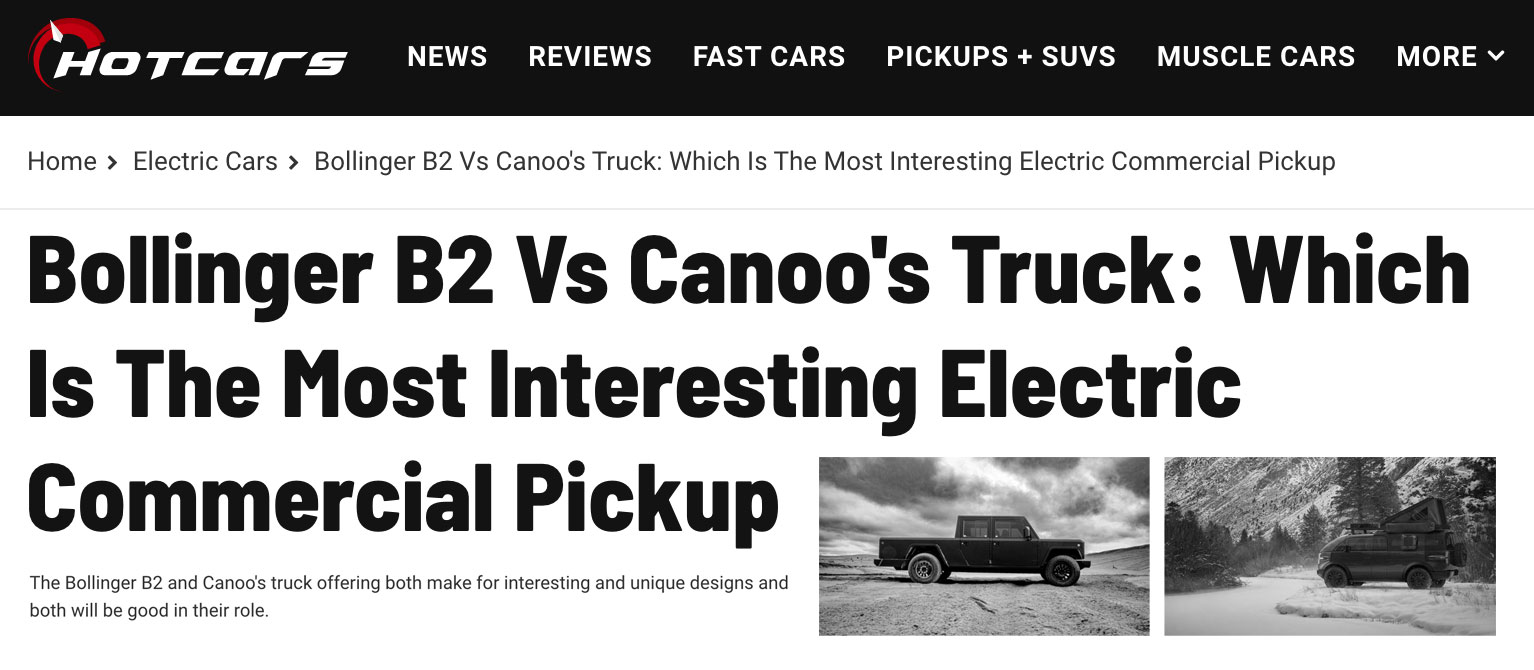I don't know that they will be the cheapest after the development is done on other tech. Especially if we stop subsidizing fossil fuels as wellIt would lead to the cheapest which would be fossil fuels which is how we got to this position anyway.
Who wants a Hummer?
- Thread starter EatenByLimestone
- Start date
-
Active since 1995, Hearth.com is THE place on the internet for free information and advice about wood stoves, pellet stoves and other energy saving equipment.
We strive to provide opinions, articles, discussions and history related to Hearth Products and in a more general sense, energy issues.
We promote the EFFICIENT, RESPONSIBLE, CLEAN and SAFE use of all fuels, whether renewable or fossil.
You are using an out of date browser. It may not display this or other websites correctly.
You should upgrade or use an alternative browser.
You should upgrade or use an alternative browser.
SpaceBus
Minister of Fire
Even without subsidies fossil fuels are still cheaper. Perhaps at some future point alternative or renewables will be less expensive, but early adoption is extremely expensive. Without help to disrupt the market (legislation) and heavy investment (subsidies) there is no incentive to change, in our capitalist society anyway. When profits are prioritized over environmental costs there can be no change.I don't know that they will be the cheapest after the development is done on other tech. Especially if we stop subsidizing fossil fuels as well
Hydrogen fuel in CA is reported to be around $5/gal FWIW.It would lead to the cheapest which would be fossil fuels which is how we got to this position anyway.
Aye, there's the rub. The full costs of fossil fuels need to be tallied to level the playing field. That includes environmental and human health costs.When profits are prioritized over environmental costs there can be no change.
ABMax24
Minister of Fire
I don't think hydrogen will really take off. The energy to produce hydrogen needs to come from somewhere, at the current time natural gas produces the lion's share through steam reforming. Hydrogen can be produced from water via electrolysis but at the current moment the round trip of efficiency is far below that of a lithium ion battery. It could however be used once technology improves for long term energy storage. Hydrogen needs to be stored either at cryogenic temperatures or at extremely high pressure to achieve a high enough energy density to be economic as a transportation fuel, something that poses huge safety issues when used for passenger cars.
I'm not saying it won't ever become popular, but electric cars seem far better to me. Plus I can generate the fuel for an electric car on my roof, a hydrogen car not so much without expensive equipment.
I'm not saying it won't ever become popular, but electric cars seem far better to me. Plus I can generate the fuel for an electric car on my roof, a hydrogen car not so much without expensive equipment.
I'll pass on all of them. Not at all interested. Cousin has a Tesla AWD SUV. $120 grand toaster.
I see with ALL of them, no price (even a suggested price) is listed.

I see with ALL of them, no price (even a suggested price) is listed.
Just a poor dirt farmer. Too rich for my blood. Besides I need a real pickup truck with an 8 foot bed, not a wannabe grocery getter. A poser like that wouldn't last a month on the farm.
I hear you. Most of these are boy toys for wealthy weekend warriors. But you've got to start someplace. As battery tech becomes better the price will come down and choices will get better.
That's why I jumped in and got a Volt. It may be our last car, and I wanted to experience some of the pleasures of electric driving. Most of our driving is local so it has that covered pretty well.
SpaceBus
Minister of Fire
Sounds like where most pickup trucks end up.Most appear to fall in the $45-85k range.
The Tesla Model X Performance is $109,000, without subsidies or Tesla financing. You need to dig like heck to find that number, though, they really try to hide it behind a lot of ”with assumed subsidies” claims.Most appear to fall in the $45-85k range.
The “economical” Model 3 Dual Motor AWD was $65k typically optioned, in 2016.
The Model S Performance cars are all well over $100,000, before even adding home charging or typical options. Again, good luck finding the cash price, first they hide it behind “assumed savings”, and then even if you remove that they apply undefined rebates for financing thru Tesla.
Of course Tesla is not the only game in town, but they’re the only one with a wide network of fast chargers deployed today, and the farthest toward a stabilized platform that’s at least a little bit depreciation-proofed at this point.
We also have two Teslas in the family, and I’ve been chided for still buying gassers. My reasons are primarily price/value and dealer convenience. The Tesla owners have both argued that a Tesla “shouldn’t” need the same level of maintenance as my ICE’s, making the distance to the dealership a non-issue, but then both admitted to having to take them back to the dealer for bug fixes or upgrades at least 2x per year. Meanwhile my 4 and 5 year old ICE cars have each only had to visit the dealer once for a safety recall.I'll pass on all of them. Not at all interested. Cousin has a Tesla AWD SUV. $120 grand toaster.
I see with ALL of them, no price (even a suggested price) is listed.
The supposed maintenance argument is bogus, IMO. Other than an oil change, which I can do in 20 minutes in my own driveway, most ICE’s don’t need a lick of maintenance outside of tires and brakes up to 120k miles. Meanwhile, it seems most EV customers I know are visiting their dealers a few times per year for unplanned recall or upgrade issues.
Sorry about that. Forgot... got it crossed with the other recent EV thread.This thread is about EV trucks. The Tesla Cybertruck estimates fall in this range.
My most recent post would be applicable to both cars and trucks, so I’ll leave that one.
Another contender in the ring is the Lordstown. It's planned market release is later this year. True 4WD.
(broken link removed)
And for those that want heavy duty

 www.businessinsider.com
www.businessinsider.com
(broken link removed)
And for those that want heavy duty
This tough-as-nails $125,000 fully electric SUV will be able to go where the Tesla Model X can't
Bollinger Motors has unveiled its first cars: a fully electric SUV and a pickup truck, both for $125,000.
Last edited:
The first year or 36,000 miles for an ICE vehicle are usually cheap, but if one follows the normal service schedule then costs often will be higher. Of course it depends on the terrain and usage, but one can expect to replace filters (oil and air) several times. As noted, brakes don't last 120k miles on ICE cars, but they can on EVs. Many cars need a timing belt replacement during the first 100k. Fluid changes for antifreeze, brakes and transmission are generally recommended too. And then there are the parts replacements when the mechanic tells you - while we-are-at-it, we recommend xxxxx (things like replace the water pump, belts, etc.). Spark plugs are often replaced by 70k miles. No matter how one looks at it, ICE vehicles are more complex and more expensive to maintain over a 120K/10 yr period.The supposed maintenance argument is bogus, IMO. Other than an oil change, which I can do in 20 minutes in my own driveway, most ICE’s don’t need a lick of maintenance outside of tires and brakes up to 120k miles. Meanwhile, it seems most EV customers I know are visiting their dealers a few times per year for unplanned recall or upgrade issues.
For a Volvo this tallies up to about $769/yr. on average

Volvo Repair: Service and Maintenance Cost
Get Volvo repair and maintenance costs, common problems, recalls, and more. Find certified Volvo mechanics near you.
2012 Dodge Charger - $691

2012 Dodge Charger Repair: Service and Maintenance Cost
Get 2012 Dodge Charger repair and maintenance costs, common problems, recalls, and more. Find certified Dodge mechanics near you.
Last edited:
Other than the brakes, I’m just not seeing that, in my own vehicles. ICEs and EVs consume tires at the same rate. Oil and filters are too cheap to even discuss, and nobody actually changes coolant or brake fluid. Most timing belts are at 120k today, often beyond, this ain’t 1990.
Brakes are the one legit maintenance item, which wear much quicker on the ICE. That’s not enough to make up for the four extra trips a family member had to make to the closest Tesla dealer inside of 18 months, for various big fixes and updates.
Brakes are the one legit maintenance item, which wear much quicker on the ICE. That’s not enough to make up for the four extra trips a family member had to make to the closest Tesla dealer inside of 18 months, for various big fixes and updates.
SpaceBus
Minister of Fire
Uhhh, you have to change brake fluid in everything. Brake fluid is hygroscopic and will build up water over time, like a few percent every year. As a result this lowers the average boiling point for the brake fluid and will result in brake failure, rust, or other damage if not changed every few years.
I've been reading that hydrogen is the future.
Just ask the owners of the Hindenburg........

Other than the brakes, I’m just not seeing that, in my own vehicles. ICEs and EVs consume tires at the same rate. Oil and filters are too cheap to even discuss, and nobody actually changes coolant or brake fluid. Most timing belts are at 120k today, often beyond, this ain’t 1990.
Brakes are the one legit maintenance item, which wear much quicker on the ICE. That’s not enough to make up for the four extra trips a family member had to make to the closest Tesla dealer inside of 18 months, for various big fixes and updates.
I do. Coolant, even if extended life is only good for 5 years and I keep my vehicles a lot longer than that and brake fluid, unless you live in the desert, needs to be changed (flushed out) every couple years because it absorbs moisture. Don't Tesla use a glycol based coolant to cool the battery pack? It needs to be renewed too.
On the humor side, I'd love to have a 'hummer'. Problem is, after 36 years of martial bliss, a 'hummer' is only a dream.....

ABMax24
Minister of Fire
This looks interesting...

 bollingermotors.com
bollingermotors.com

BOLLINGER B2 VS CANOO
The Only Class 3 Commercial Electric Trucks on the Planet.
Agreed. But ask your neighbors and co-workers when they last changed their brake fluid, and 99.9% of them will just return a blank stare. It’s not a point of contention in this debate though, the same people who do/don’t change their brake fluid in an ICE will be the same people who do/don’t change their brake fluid in an EV. So, it is not a point of comparison.Uhhh, you have to change brake fluid in everything. Brake fluid is hygroscopic and will build up water over time, like a few percent every year. As a result this lowers the average boiling point for the brake fluid and will result in brake failure, rust, or other damage if not changed every few years.
Of course, if we were to debate it, I’d argue the hot engine compartment of an ICE may delay the water infiltration issue, beyond that of an EV.
Similar threads
- Replies
- 59
- Views
- 8K
- Replies
- 152
- Views
- 15K
- Replies
- 9
- Views
- 3K

